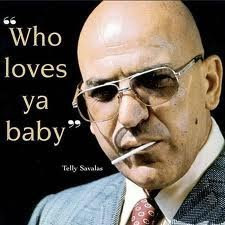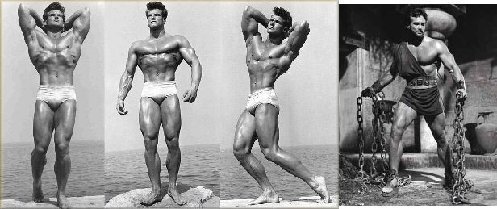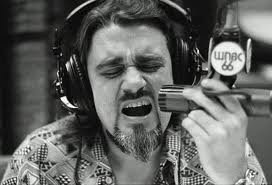Good 37º drizzling rain morning.
Be careful out there today....... full moon!!!
Yesterday a break in the pouring rain.... we did have some and ended up with 1/4".
Picture of the Day
Interesting about fingerprinting...
There is substantial proof that fingerprinting was invented in China. In 221-206 BC, Chinese records from the Qin Dynasty provide details of fingerprints being used to investigate criminal cases involving burglaries. Next, in 650 AD, 600 years before Marco Polo visited “Cathay”, Chinese historian Kia Kung-Yen wrote of fingerprinting. He talked about it being used as an older method of preparing contracts. The law book of Yung-Hwui of the same period also listed that the husband in a divorce decree had to sign the document using his fingerprints.
In 1100 AD, Chinese novelist Shi-Naingan wrote in his book, "The Story of the River Bank", “He compelled them to ink their fingers to record their fingerprints.”
Centuries and decades after the actions of the Chinese, a law student who is now unknown published his doctoral thesis in 1823 where he described fingerprint types. He classified them into nine major groups. But author and Czech experimental physiologist Johannes Purkinje later gave them no identification value. His efforts were very important since he is considered to be the first in the 19th century who recognized the uniqueness of fingerprints.
Many historians now credit Sir William Herschal with being the first person to definitely use fingerprints for identification purposes. While working for the East India Company in Bengal, India, Herschal had natives place their palm and fingerprints on contracts and receipts.
- Nothing warms you up like a flavorful casserole. Nothing shows you care like a comforting hearty casserole!
- Pasta and Ground Beef Casserole from Mr. Food
- 1 pound ground beef
- 1/2 pound fresh mushrooms, cut in half
- 1/2 pound elbows pasta, cooked according to package directions
- 1 (24-ounce) jar spaghetti sauce
- 2 cups (8 ounces) shredded Cheddar cheese
- Preheat oven to 350º.
- In a large skillet over medium-high heat, brown ground beef. Add mushrooms and saute 2 minutes, then drain off excess liquid.
- In a large bowl, combine beef mixture, pasta, spaghetti sauce, and cheese; mix well. Spoon into a 2-quart casserole dish and cover.
- Bake 40 minutes or until heated through.
Historically this date....
1954 – The first nuclear-powered submarine, the USS Nautilus, is launched in Groton, Connecticut by Mamie Eisenhower, the First Lady of the United States.
1968 – Vietnam War: Battle of Khe Sanh – One of the most publicized and controversial battles of the war begins.
1968 – A B-52 bomber crashes near Thule Air Base, contaminating the area after its nuclear payload ruptures. One of the four bombs remains unaccounted for after the cleanup operation is complete.
1999 – War on Drugs: In one of the largest drug busts in American history, the United States Coast Guard intercepts a ship with over 4,300 kilograms (9,500 lb) of cocaine on board.
And births this date include...
AFC Championship
New England
Patriots
13-5
|
Yesterday·Final/OT
37 - 31
|
@ Kansas City
Chiefs
13-5
|
The Patriots played the Kansas City Chiefs yesterday and won 37-31. Earlier the New Orleans Saints played the LA Rams and the Rams won 26-23. So now, in Super Bowl 53 the Patriots will play the Rams.
The Rams were the St. Louis Rams back when they played the Patriots for the first time in a Super Bowl in 2002.
Super Bowl XXXVI
St. Louis
Rams
|
February 2, 2002
17 - 20
|
New England
Patriots
|
All I know. Nuff said. Happy Federal Holiday schools/banks/post offices closed Monday. Ciao.
xo Sue Mom Bobo
This blew me away, I didn't know about Squirrel Appreciation Day when I wrote about squirrels on yesterday's blog! Should have saved that story for today!
And it's also...............
Martin Luther King Jr. Day is on the third Monday in January. Martin Luther King Jr.(January 15, 1929 – April 4, 1968) was an American clergyman, activist and leader in the African-American Civil Rights Movement. He is best known for his role in the advancement of civil rights using nonviolent civil disobedience. King has become a national icon in the history of American progressivism. Hundreds of streets in the U.S. have been renamed in his honor.
A gifted and friendly student, King attended Morehouse College where he earned a BA in sociology. Combining a passion for racial equality with a rediscovered spirituality, King then attended Crozer Theological Seminary following in his father’s and grandfather’s footsteps earning a Bachelors of Divinity.
Shortly after he completed his Ph.D. in theology at Boston University in 1955 a 42-year-old Rosa Parks (See Rosa Parks Day which is observed December 1) refused to give up her seat on a bus in Montgomery, Alabama. The opportunity for the NAACP to bring their civil rights efforts to the forefront was before them, and King was chosen to lead the successful city-wide boycott of the Montgomery transit system.
Just over a year later, King along with over 60 other ministers and activists founded the Southern Christian Leadership Conference. Together they coordinated non-violent protests and gave a voice to the young civil rights movement.
Through the next twelve years, King would be influential in organizing marches, sit-ins and political rallies for civil rights. During a 1963 March on Washington, D.C. for Jobs and Freedom, King spoke before more than 200,000 regarding the challenges African Americans face. His “I Have a Dream” speech has gone down in many history books as one of the greatest speeches ever given. Brutally honest, a call to action and a vision of hope, King’s speech resonated throughout the nation.
In early 1964, during a march outside Selma when 1,500 men and women were met by a wall of state troopers, King lead the marchers in prayer successfully avoiding any confrontation with authorities. On July 2, President Lyndon B. Johnson signed the Civil Rights Act of 1964 outlawing discrimination based on race, color, religion, sex or national origin. That same year, King became the youngest recipient of the Nobel Peace Prize for his unswerving work in the Civil Rights Movement.
In early 1965, Selma, Alabama became the center of the Civil Rights movement when new voting rights legislation was introduced in Congress that would ban literacy tests, mandate federal oversight where tests were administered and would give the U.S. attorney general the duty of challenging the use of poll taxes for state and local elections. Televised violence in February of that year resulted in the death of Jimmie Lee Jackson. King’s presence and President Johnson’s support of the marchers helped bring peace. Throughout the next month, marchers continued between Selma and Montgomery. Congress Passed the Voting Rights Act in August of that year.
Author, speaker, father, theologian, activist, King was assassinated by James Earl Ray on April 4, 1968, in Memphis, Tennesee. There in support of a sanitation workers’ strike, King and other SCLC members were staying at the Lorraine Motel when Ray’s bullet would strike King on the balcony. Riots and violence would follow and President Johnson would call for peace, referring to King as the “apostle of nonviolence.”
HISTORY
While President Ronald Reagan signed the established into law in 1983, Martin Luther King, Jr. Day was first observed as a U.S. federal holiday in 1986.












